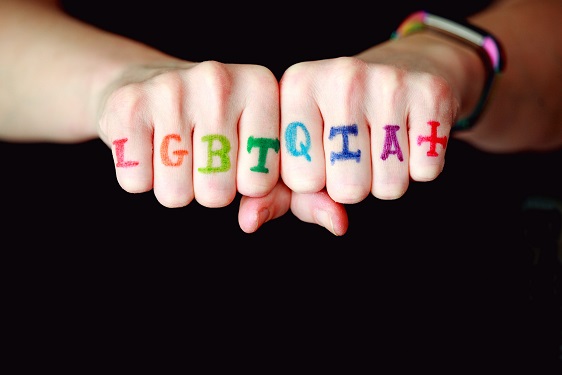Kellie-Jay Keen (also known as Posie Parker)  was pelted with tomato sauce in Auckland and left the country. Just weeks later she has appeared in Belfast in Northern Ireland at a Let Women Speak rally. Ms Keen is known for her opposition to transgender rights.
was pelted with tomato sauce in Auckland and left the country. Just weeks later she has appeared in Belfast in Northern Ireland at a Let Women Speak rally. Ms Keen is known for her opposition to transgender rights.
It is reported that hundreds of people gathered in the Donegall Quay area of Belfast and again police officers had to be drafted in to keep crowds of protesters separate at the Kellie-Jay Keen rally.
The original location was changed after organisers said they were threatened. Police said attendees should have "a clear understanding of their legal obligations". "As a police service we have a responsibility to uphold and balance the human rights of all of our citizens," they added.
Transgender and gender diverse are umbrella terms that cover a wide variety of gender identities. Not all transgender people want to conform to binary gender norms. Gender diverse people may identify as binary (man or woman) or non-binary (a grouping which includes a range of different experiences and identities that fall outside or do not strictly align with either end of a man/woman binary identity. Each person’s gender expression (how they present to the world) is unique.
Some gender diverse people experience distress as a result of the discrepancy between their gender identity and the sex that they were assigned at birth. Some individuals transition between binary identities or have transition goals that may include different aspects of social, medical or surgical care.
It may surprise readers that there is no explicit protection from discrimination for people with variations of sex characteristics in New Zealand legislation.
Section 21 of the Human Rights Act recognises thirteen prohibited grounds of discrimination, including sex and sexual orientation. ‘Sexual orientation’ is defined under the Act to mean “heterosexual, homosexual, lesbian, or bisexual orientation.” The definition of ‘sex’ simply states that the term “includes pregnancy and childbirth”.
Although yet to be determined by the New Zealand Courts, the Human Rights Commission interprets “sex” under the Act to include gender identity, gender expression, and sex characteristics; and it accepts complaints of discrimination on this basis.
There have been calls to amend section 21(1)(a) of the Human Rights Act to specifically include gender identity, gender expression, and sex characteristics under the ground preventing discrimination based on “sex”.
In the workplace, the Employment Relations Act prohibits discrimination on the basis of “sexual orientation” and “sex” but it relies on the definition provided in the Human Rights Act.
In fact the Government information website on employment matters https://www.employment.govt.nz/ notes that “transgender people may be [emphasis added] protected under the Human Rights Act 1993 from unlawful discrimination on the grounds of gender identity in the workplace but this has not been tested in New Zealand courts.”
New Zealand has come a long way. Activist Shaneel Lal become the first transgender person to win a New Zealander of the Year award this year for their work in the rainbow community. The 22-year-old has been instrumental in the fight to ban conversion therapy and was active in the recent protest against anti-trans campaigner Posie Parker.
Having noted New Zealand’s progress, the Cook Islands are part of the Realm of New Zealand and the Head of State is the King of New Zealand. That means that while it administers its own affairs, Cook Islanders are New Zealand citizens.
The Cook Islands have finally removed a law from its Crimes Act that could jail men for having sex with men. The law provided that "indecent acts between males" was an offence and was punishable by up to five years in prison.
Cook Island Prime Minister Mark Brown said in a tweet that it was a "historic day" for his Cook Islands Party "to stomp out discrimination of the LGBT community." Another perspective may be that the Cook Islands still has a long way to go, a journey that New Zealand is still on? Read more.....

